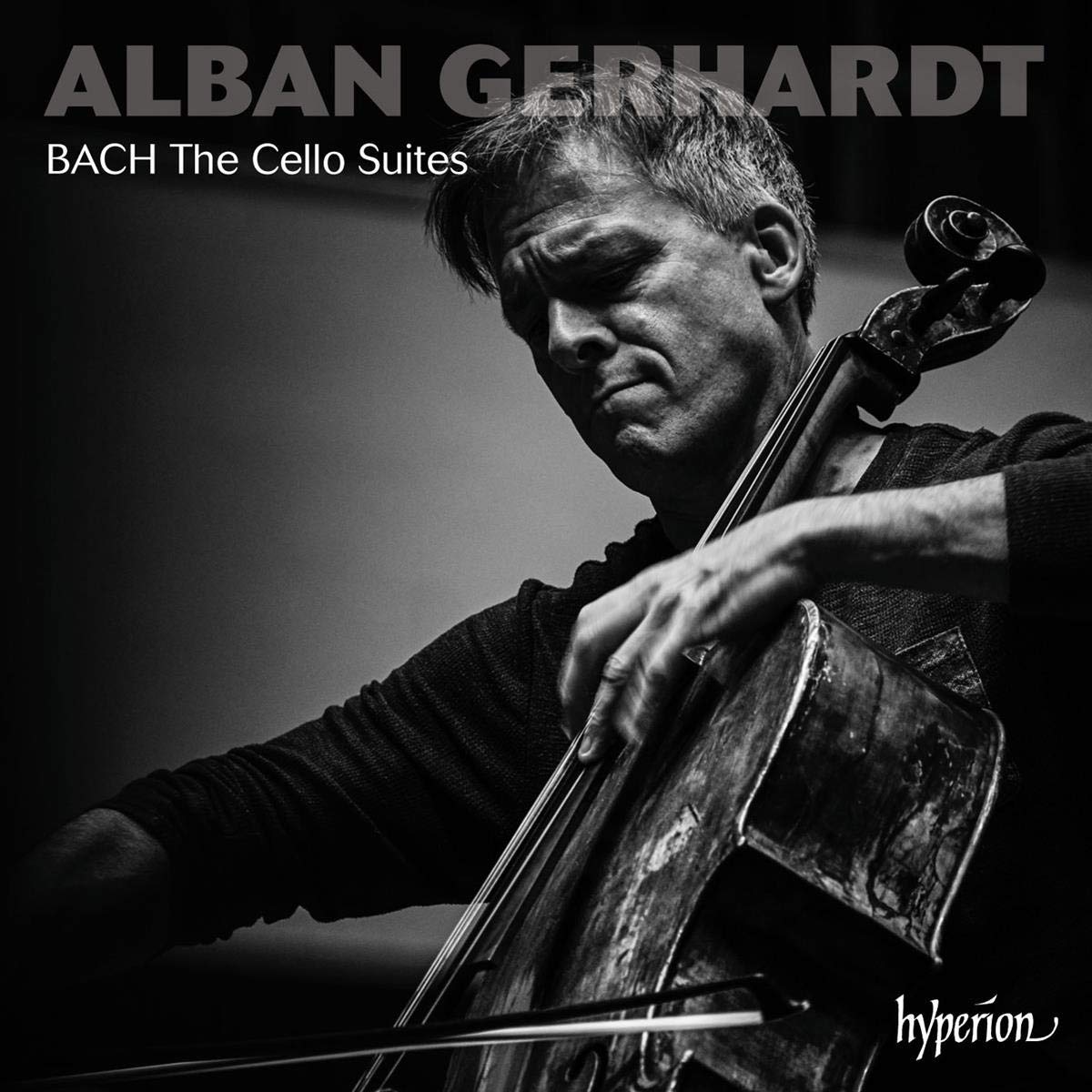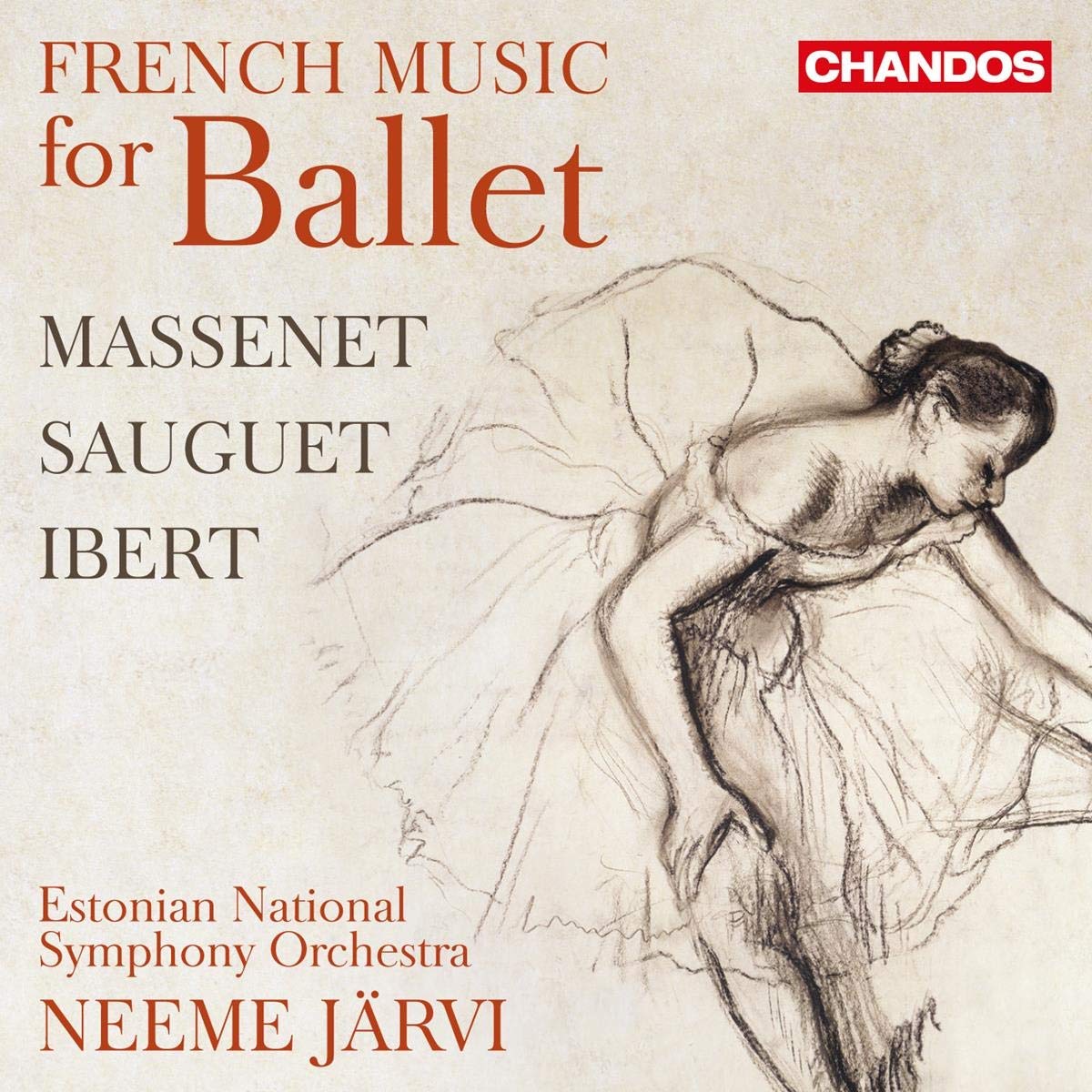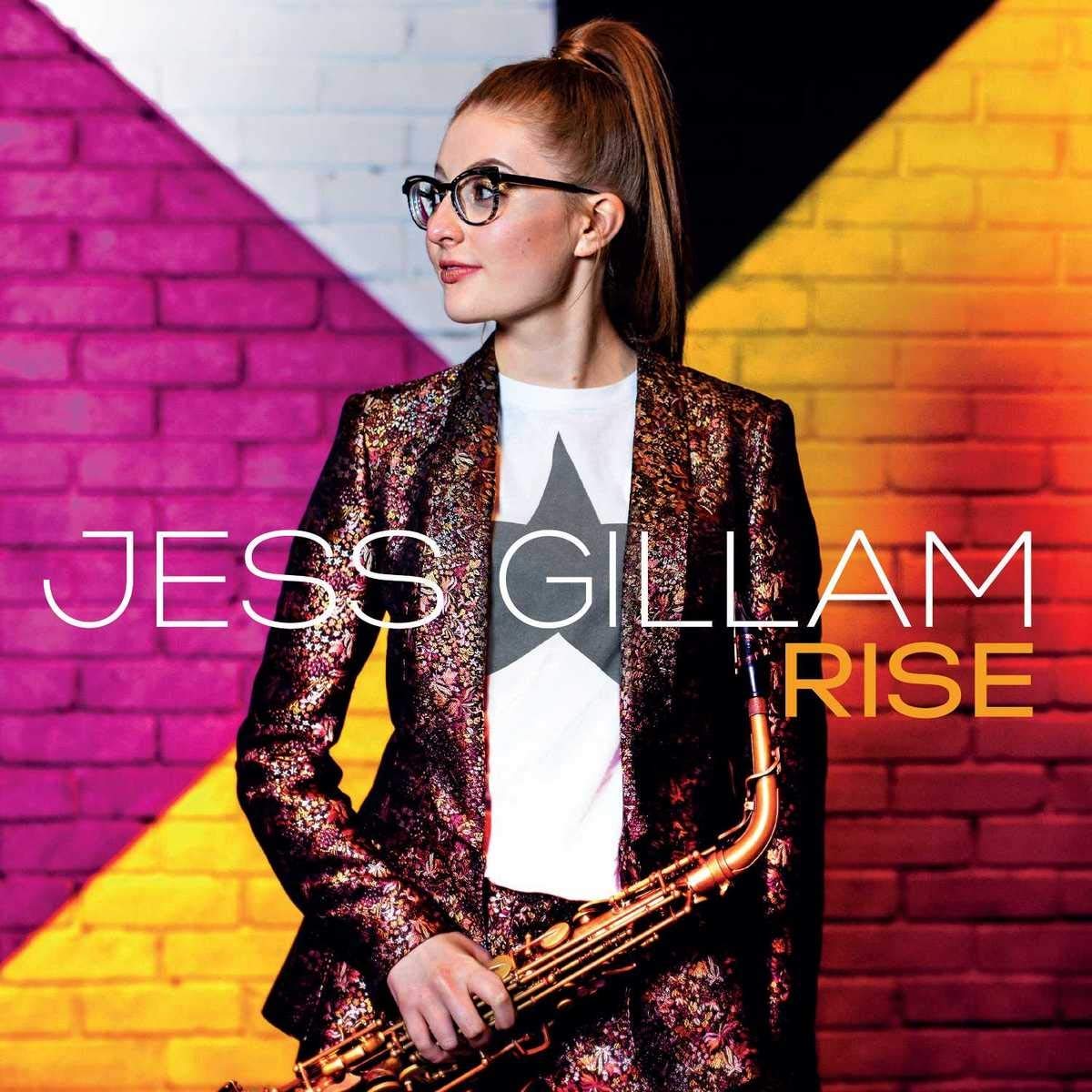Classical CDs Weekly: Bach, Jess Gillam, Neeme Järvi | reviews, news & interviews
Classical CDs Weekly: Bach, Jess Gillam, Neeme Järvi
Classical CDs Weekly: Bach, Jess Gillam, Neeme Järvi
The bible for cellists, Gallic balletic rarities and colourful music for saxophone

 Bach: The Cello Suites Alban Gerhardt (Hyperion)
Bach: The Cello Suites Alban Gerhardt (Hyperion)
Alban Gerhardt looks as if he's hewn from granite in Adam Markowski’s superb cover photograph here. Even his Matteo Goffriller cello looks like it's been through the wars. Gerhardt tells us in his foreword that he’d originally refused to record the six Bach Suites before he turned 50, then realised that the date was fast approaching. He's disarmingly honest about the difficulties of playing these pieces now, notably in terms of how much notice to take of historically-informed performances. Plus, there's how to balance vibrato and articulation without annoying the recording engineer. I'm making this set seem like Gerhardt's response to a midlife crisis, but it's nothing of the sort. Much as I like a bit of introspection in solo Bach, I prefer it when the performer makes eye contact and tosses us the odd wink. Gerhardt does that: play the CDs at a healthy volume and he's right there, in the room. It's uncanny.
Gnarlier movements like the gritty prelude to Suite No 5 are thrillingly accessible. Gerhardt's cello speaks like a wise old bloke sat in a cosy pub, one who chooses his words wisely. When he's in full flight he's utterly compelling. Witness the startling opening to Suite No 3 once the pounding pedal Gs begin, Gerhardt turning the screws until the C major cadence offers delicious, welcome relief. The same suite’s sarabande is heart-stopping. There’s never a dull moment: these are humane, deeply thought performances captured in glowing sound.
 French Music for Ballet: music by Massenet, Sauguet and Ibert Estonian National Symphony Orchestra/Neeme Järvi (Chandos)
French Music for Ballet: music by Massenet, Sauguet and Ibert Estonian National Symphony Orchestra/Neeme Järvi (Chandos)
Erik Satie introduced the young Parisian composer Henri Sauguet to Diaghilev in 1924, who later commissioned Sauguet’s first ballet. Sauguet went on to write many more, dedicating 1945’s Les Forains to the eccentric who had supported him 20 years earlier. Nigel Simeone's sleeve note bravely attempts to explain who knew who in Sauguet's circle: among those name-checked are Roland Petit, André Cluytens, Cocteau and Poulenc. Les Forains was first performed in 1945, a pleasingly inconsequential score whose fluffiness fitted the mood of a newly-liberated Paris. An everyday tale of circus folk, it's mostly Satie-esque, brightly coloured fun but curiously unmemorable, apart from the “Entrée des Forains”, the melody recycled by Sauguet a decade later for an Edith Piaf song.
The ballet suite from Massenet's 1881 opera Hérodiade is more conventional fare, its various numbers illustrating Egyptian, Babylonian, Gaulois and Phoenician dances. The Phoenicians get the most memorable material, and Massenet ends his suite with a rousing knees-up. More musically interesting is Les Amours de Jupiter by Jacques Ibert, another postwar commission premiered in Paris a year after Les Forains. Ibert couldn't write a dud tune if he tried, and this work has delights in abundance. A few seconds of the tiny “Ensemble des filles” should be enough to persuade anyone, Ibert following it with a gorgeously louche “Solo d’Europe”. Hats off to Neeme Järvi's Estonian National Symphony Orchestra, surmounting Ibert’s technical challenges with ease, every punchy offbeat in place. Sumptuous engineering, too: a fun disc.
 Jess Gillam: Rise (Decca)
Jess Gillam: Rise (Decca)
There's a distinct lack of big solo pieces for saxophonists to tackle, so the fact that Jess Gillam’s debut collection consists mostly of arrangements shouldn't come as a surprise. Not that it's a problem: talented players have enough oomph to seize ownership of the most unlikely repertoire. Which is what Gillam does here, giving us Kate Bush and David Bowie alongside Milhaud, Dowland and Weill. Gillam's clean, clear playing style is her greatest strength, the results never sounding mawkish. Switching between alto and soprano saxophone, Gillam’s sound never sounds forced, even when she's at the extremes of the instrument’s register. Just how agile she can be is demonstrated in a couple of latin-tinged numbers by Pedro Iturralde and Milhaud, and there's a scintillating arrangement of the Russian song “Dark Eyes”, superbly accompanied by the augmented Tippett Quartet. It's frustrating to have just the opening movement of John Williams’ Escapades, a superb concerto drawn from his score to Spielberg's Catch Me If You Can, though John Harle’s transcription of the adagio from Marcello’s Oboe Concerto is a charmer.
And while I'm inherently suspicious of star musicians who shed their surnames (and in this case their lower case letters, too), guitarist du jour MILOŠ does provide idiomatic backing in a transcription of Dowland's “Flow My Tears”. Gillam's mentor John Harle contributes a RANT!, drawing on folk tunes from Gillam's native Cumbria. And those of us who grew up in the 70s will enjoy a pleasantly smoochy traipse through Francis Lai’s theme to Love Story. Terrible film, but a fine tune. Don't dismiss this as crossover fluff: Gillam is the real thing, deserving serious attention after her recent comments about the current plight of music education in the state sector. She knows that learning instruments makes us better people, and it's depressing to find out that the local authority music centre which kick-started Gillam’s career has now shut shop due to austerity.
Explore topics
Share this article
The future of Arts Journalism
You can stop theartsdesk.com closing!
We urgently need financing to survive. Our fundraising drive has thus far raised £49,000 but we need to reach £100,000 or we will be forced to close. Please contribute here: https://gofund.me/c3f6033d
And if you can forward this information to anyone who might assist, we’d be grateful.

Subscribe to theartsdesk.com
Thank you for continuing to read our work on theartsdesk.com. For unlimited access to every article in its entirety, including our archive of more than 15,000 pieces, we're asking for £5 per month or £40 per year. We feel it's a very good deal, and hope you do too.
To take a subscription now simply click here.
And if you're looking for that extra gift for a friend or family member, why not treat them to a theartsdesk.com gift subscription?
more Classical music
 Goldscheider, Brother Tree Sound, Kings Place - music of hope from a young composer
Unusual combination of horn, strings and electronics makes for some intriguing listening
Goldscheider, Brother Tree Sound, Kings Place - music of hope from a young composer
Unusual combination of horn, strings and electronics makes for some intriguing listening
 Helleur-Simcock, Hallé, Wong, Bridgewater Hall, Manchester review - moving lyricism in Elgar’s concerto
Season opener brings lyrical beauty, crisp confidence and a proper Romantic wallow
Helleur-Simcock, Hallé, Wong, Bridgewater Hall, Manchester review - moving lyricism in Elgar’s concerto
Season opener brings lyrical beauty, crisp confidence and a proper Romantic wallow
 Kohout, Spence, Braun, Manchester Camerata, Huth, RNCM, Manchester review - joy, insight, imagination and unanimity
Celebration of the past with stars of the future at the Royal Northern College
Kohout, Spence, Braun, Manchester Camerata, Huth, RNCM, Manchester review - joy, insight, imagination and unanimity
Celebration of the past with stars of the future at the Royal Northern College
 Jansen, LSO, Pappano, Barbican review - profound and bracing emotional workouts
Great soloist, conductor and orchestra take Britten and Shostakovich to the edge
Jansen, LSO, Pappano, Barbican review - profound and bracing emotional workouts
Great soloist, conductor and orchestra take Britten and Shostakovich to the edge
 Jakub Hrůša and Friends in Concert, Royal Opera review - fleshcreep in two uneven halves
Bartók kept short, and a sprawling Dvořák choral ballad done as well as it could be
Jakub Hrůša and Friends in Concert, Royal Opera review - fleshcreep in two uneven halves
Bartók kept short, and a sprawling Dvořák choral ballad done as well as it could be
 Hadelich, BBC Philharmonic, Storgårds, Bridgewater Hall, Manchester review - youth, fate and pain
Prokofiev in the hands of a fine violinist has surely never sounded better
Hadelich, BBC Philharmonic, Storgårds, Bridgewater Hall, Manchester review - youth, fate and pain
Prokofiev in the hands of a fine violinist has surely never sounded better
 Monteverdi Choir, ORR, Heras-Casado, St Martin-in-the-Fields review - flames of joy and sorrow
First-rate soloists, choir and orchestra unite in a blazing Mozart Requiem
Monteverdi Choir, ORR, Heras-Casado, St Martin-in-the-Fields review - flames of joy and sorrow
First-rate soloists, choir and orchestra unite in a blazing Mozart Requiem
 Cho, LSO, Pappano, Barbican review - finely-focused stormy weather
Chameleonic Seong-Jin Cho is a match for the fine-tuning of the LSO’s Chief Conductor
Cho, LSO, Pappano, Barbican review - finely-focused stormy weather
Chameleonic Seong-Jin Cho is a match for the fine-tuning of the LSO’s Chief Conductor
 Classical CDs: Shrouds, silhouettes and superstition
Cello concertos, choral collections and a stunning tribute to a contemporary giant
Classical CDs: Shrouds, silhouettes and superstition
Cello concertos, choral collections and a stunning tribute to a contemporary giant
 Appl, Levickis, Wigmore Hall review - fun to the fore in cabaret and show songs
A relaxed evening of light-hearted fare, with the accordion offering unusual colours
Appl, Levickis, Wigmore Hall review - fun to the fore in cabaret and show songs
A relaxed evening of light-hearted fare, with the accordion offering unusual colours
 Lammermuir Festival 2025, Part 2 review - from the soaringly sublime to the zoologically ridiculous
Bigger than ever, and the quality remains astonishingly high
Lammermuir Festival 2025, Part 2 review - from the soaringly sublime to the zoologically ridiculous
Bigger than ever, and the quality remains astonishingly high
 BBC Proms: Ehnes, Sinfonia of London, Wilson review - aspects of love
Sensuous Ravel, and bittersweet Bernstein, on an amorous evening
BBC Proms: Ehnes, Sinfonia of London, Wilson review - aspects of love
Sensuous Ravel, and bittersweet Bernstein, on an amorous evening

Add comment